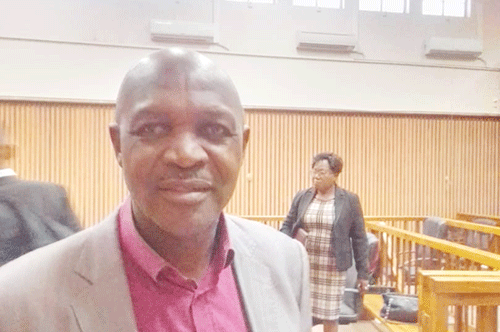Maria Amakali
Former CEO of the Roads Contractor Company Kelly Nghixulifwa and his wife are challenging parts of the High Court Act and the Rules of the court, arguing it cost them their commercial farm.
The couple is suing the President, attorney general, Agribank, registrar of the High Court and registrar of deeds.
In their suit, Nghixulifwa and his wife Meriam Nghixulifwa are claiming Section 39(1)(b) of the High Court Act and Rule 109(2) and 110(1) to (14) were used by Agribank to obtain a special execution order against their commercial farm after they defaulted on the repayment of their loan.
This particular section deals with rights afforded to the judge president, with the approval of the State president, pertaining to judgements dealing with executions of properties, among others.
The couple was loaned N$6.3 million, with an interest rate of 8% per annum over 25 years, to purchase a commercial farm in the Oshikoto region. However, after several defaults, the bank said they owed N$8.7 million in total.
They are arguing the fact that the president decides on which rule or rules should come into force is directly in conflict with the common principle of separation of powers and that the judiciary should be independent in its dealings, procedures and rules.
“To have the head of the executive deciding whether or not rules should be approved, in other words, giving him the discretion to refuse to approve certain rules even when the Judiciary thinks the rules are necessary and appropriate, is a serious defect,” said Nghixulifwa in his
affidavit.
He further said the rules do not make provision for farm workers who may be left destitute if a particular farm is sold by the bank.
Despite seeking for the section and rules to be declared unconstitutional, they admit the execution order was granted by the court against them after they failed to defend the matter. The couple also wants the court to declare the execution order unlawful and set it aside.
In reply, on behalf of the president and himself, attorney general Festus Mbandeka said the Nghixulifwas do not have any legal standing to launch such constitutionality challenge, as they have failed to provide evidence proving the injuries suffered as a result of the said section.
He said there is no constitutional defect, as the judge president’s functions as a judge do not overflow to his duties when making the rules of the court.
“When the judge president makes court rules, it is of vital importance that the first respondent (president) acts as a check and balance of the powers of the judge president as he forms part of the legislative process as the final arbiter of the law that would normally originate from the executive,” explained Mbandeka.
In response to the farmworkers, Mbandeka said they too have no legal standing, and no affidavits were furnished. Thus, the court should dismiss the application with cost.The matter is before judge Marlene Tommasi.
– mamakali@nepc.com.na



